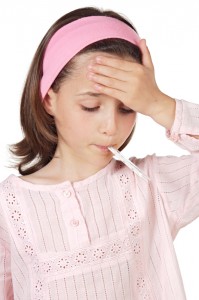Fever In Children: When To Go To Urgent Care For A Fever
 When your child experiences a fever it can be stressful, but it’s not usually worth panicking over. If your child is healthy, a fever doesn’t typically indicate anything dangerous. Instead, a fever can be a good thing because it is the body’s way of fighting off an infection. This is why low fevers don’t always need medical attention; the body is already doing its job fighting off an infectious intruder.
When your child experiences a fever it can be stressful, but it’s not usually worth panicking over. If your child is healthy, a fever doesn’t typically indicate anything dangerous. Instead, a fever can be a good thing because it is the body’s way of fighting off an infection. This is why low fevers don’t always need medical attention; the body is already doing its job fighting off an infectious intruder.
It is not until fever in children extends beyond a certain temperature that things can turn dangerous and your child may experience increased discomfort. If a high fever persists without medical treatment a child is at risk for other problems, such as dehydration. This is why it’s important to know when to go to urgent care for a fever.
How To Tell If Your Child’s Fever Is Serious Or Not
Usually you can tell if your child has a fever by simply placing your hand to their forehead. This is a good indicator but it doesn’t give you an exact number, which is important when determining the severity of fever in children.
In order to accurately measure your child’s temperature you have three options, orally, rectally or axillary position. Depending on the method you use to measure temperature you will be looking for a different key number.
-Orally take temperature (mouth thermometer): anything at or over 99.5°F is considered a fever.
-Rectally take temperature (in the bottom): anything at or over 100.4°F is considered a fever.
-Axillary position to take temperature (under the arm): anything at or over 99.9°F is considered a fever.
Your child’s temperature doesn’t always indicate how sick they are. In fact, a simple cold or mild virus can cause a child’s temperature to accelerate into the 102°F – 104°F range. This might seem high but as long as the fever is caused by a regular infection it shouldn’t contribute to any serious problems.
When To See A Doctor For Your Child’s Fever
In order to determine if your child needs medical attention for a fever it’s important to take into consideration the number on the thermometer as well as their overall condition.
If your child’s temperature does not peak above 102°F, they more than likely do not need medication unless they are experiencing discomfort or other unusual symptoms.
The illness or underlying cause of fever is likely not serious if:
-Your child is still interested in playing.
-Your child is able to eat and drink.
-Your child is alert and smiling.
-Your child’s coloring is normal.
Not wanting to eat alone doesn’t necessarily mean anything serious. It is common for children with a fever to not have an appetite. It is more important to make sure your child is getting enough fluids so that they don’t become dehydrated.
Chills are a common side effect of fever caused by the rising and falling of your child’s internal body temperature. When the body temperature rises, your child may experience chills as a result. As the temperature starts to drop, the body lets off excess heat, causing your child to sweat.
In some cases, children may breathe heavier due to a fever. Contact a doctor if your child has a fever and is having difficulties breathing.
What Is A Fever?
A fever occurs whenever your internal thermostat increases above your body’s normal temperature. Your internal thermostat exists in a part of your brain known as the hypothalamus. The hypothalamus works to keep your body at a fairly consistent temperature, somewhere near 98.6°F. When your body temperature increases beyond normal, the hypothalamus sends messages to appropriate areas.
Your body temperature naturally varies slightly throughout the day; it is typically a little lower in the morning and a little higher in the evening, as well as during playtime and exercise.
If there is an infection in the body the hypothalamus turns up your natural body temperature. Researches believe this is the body’s way of ‘cooking’ out the infection, or making the body a less desirable place for bacteria to reside.
What Causes Fever?
A fever is not an illness in itself; instead it is a side effect of another underlying cause. Finding out the cause of the fever is the most important step to getting better.
A fever may be caused by a number of factors, most commonly though fever has to do with an infection the body is trying to fight off. Another common contributor is immunizations, which always have the potential to cause a low-grade fever in children.
If your infant has a rectal temperature that reaches over 100.4°F you need to take them to the Emergency Room immediately. All children under 2-years old need to be taken to the Emergency Room for a fever. Children over 2-years-old with a fever may be taken to your local Urgent Medical Center.
